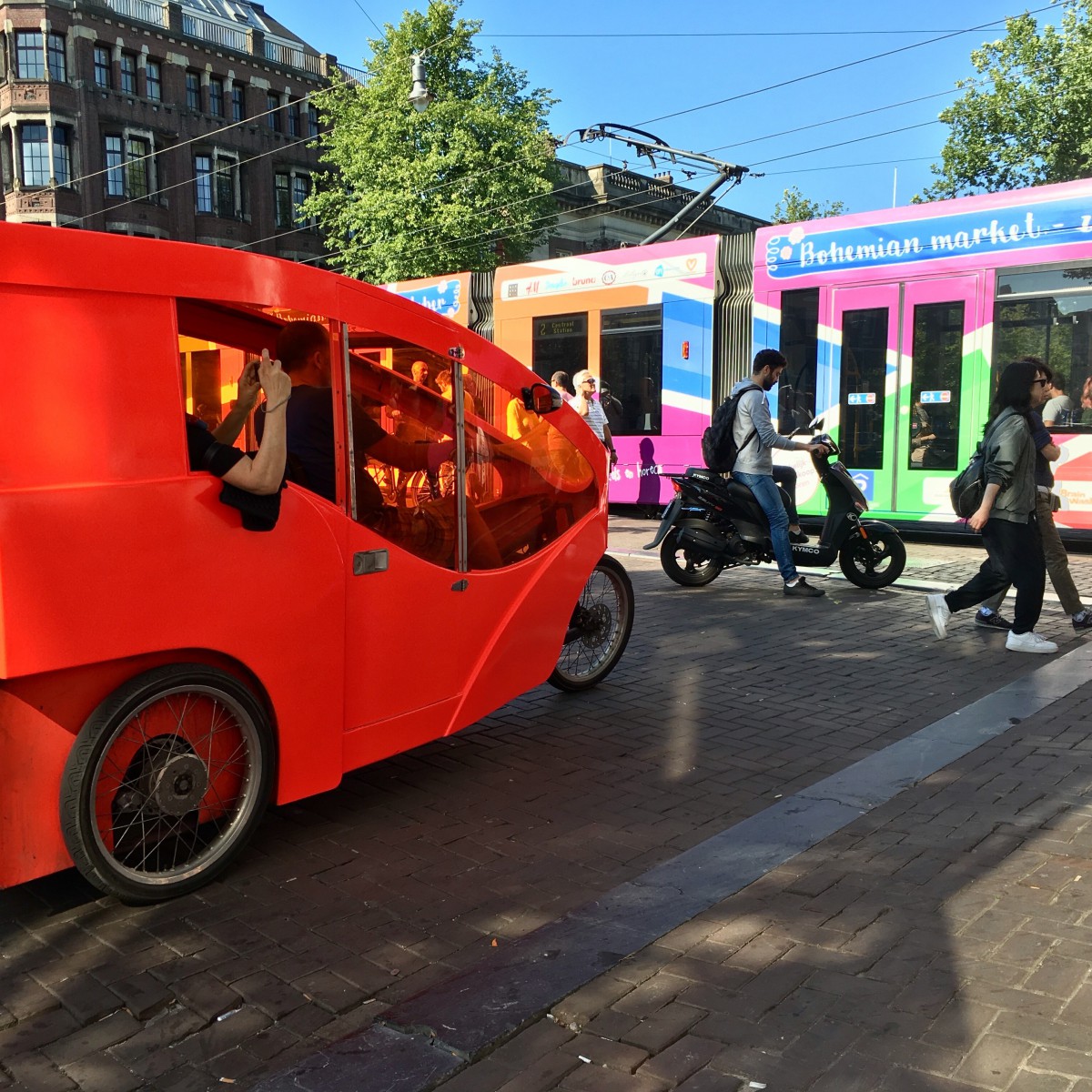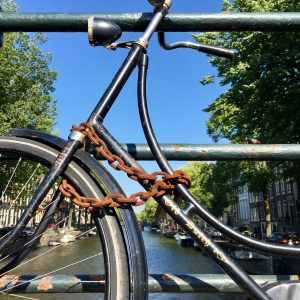
Kevin J. Krizek, PhD. Professor and Director, Program in Environmental Design at the University of Colorado Boulder. Visiting Professor of Cycling in Changing Urban Regions, Radboud University, Institute for Management Research (the Netherlands)
Comfort with the quick ‘back glance’ over one’s left shoulder. The casual extension of a right arm as a signal. The ease of “hopping up” to sit on the back of a bicycle. Most are everyday behaviors for many Dutch. To foreigners, they are….(largely) foreign.
Knowing aspects endemic to one’s culture is one thing. Understanding how they came to be is another. Still a third challenge lies in uncovering dimensions that can suitably exported to other settings.
The future of transport vis-à-vis changing conditions in cities is due for big changes. Bicycling is increasingly playing a big role in these discussions. Researchers, politicians, advocates, and citizens across the globe are keen to learn from the cycling experiences of the Dutch.
But do the Dutch have it figured out? Responding to that question is a loaded one that warrants a different line of thought. There is a lot of evidence to suggest yes. Reliably knowing parts of the Dutch recipe that can be prepared in other kitchens is paramount in this endeavor.
Any meaningful narrative towards this end will need to be multi-chaptered. There might even be different volumes for context situations. Countless perspectives would be needed to successfully peel back many layers.
Research-informed and evidence-based work (as opposed to normative, descriptive, or opinion) should play a strong role in these discussions. At the site of a KiM workshop on the future of Dutch cycling, from where I started writing this post, both the desire and need for multiple research-informed perspectives was reinforced. (From what I could discern, many ideas were bantered about. My Dutch, unfortunately, is not strong enough to fully understand the presentations and dialogue that were presented; I did have translated notes from the essays, however.) Moving the needle on this complex issue will require conceptual, empirical or theoretical insights. Research informed insights will need to come from many disciplines. To have impact, it will also need to engage civil servant and advocates alike. Otherwise, we will just get cyclists talking to cyclists. Reliable and research informed perspectives to shed light on these issues are what we are seeking as part of the call for contributions for the prior to main Velo-city 2017 conference next June in Nijmegen.
This is a tall order for the cycling community. Colleagues (Susan Handy and Ann Forsyth) and I, almost a  decade ago, pointed to the potential of cycling’s eternal challenges from a research perspective. Our working title of the article was the “Cycling Researchers Full Employment Act.” Our purview was admittedly a bit more limited than what I am suggesting now. Back then, we merely questioned the ability to make sense of analysis, given the challenge of limited data. We questioned the external validity of analysis based on different sampling protocol. The landscape of these issues have changed with advances technology. What has remained unwavering, however, is the need for clear conceptualization, sound research design, measurement innovations, and strategic sampling in such pursuits.
decade ago, pointed to the potential of cycling’s eternal challenges from a research perspective. Our working title of the article was the “Cycling Researchers Full Employment Act.” Our purview was admittedly a bit more limited than what I am suggesting now. Back then, we merely questioned the ability to make sense of analysis, given the challenge of limited data. We questioned the external validity of analysis based on different sampling protocol. The landscape of these issues have changed with advances technology. What has remained unwavering, however, is the need for clear conceptualization, sound research design, measurement innovations, and strategic sampling in such pursuits.
Reliably researching aspects of Dutch cycling that have implications for the rest of the world has enormous potential and challenges. Being aware of what is endemic and unique is part of the puzzle. Here’s to this site hosting a compendium of blog posts that will provide a focused, measured, and direct voice on these important issues.

Leave a Reply
You must be logged in to post a comment.